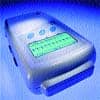According to the Mayo Clinic, a study showed that sleep logs provided less reliable data for a narcolepsy diagnosis and actigraphy data provided information on whether or not to further test a patient.
That led psychiatrist R. Robert Auger, MD, and colleagues at the Center for Sleep Medicine at Mayo Clinic’s campus in Rochester, Minnesota, to conduct a retrospective chart review comparing longitudinal TST data from actigraphy and sleep logs over a four-month period.
The study, which was published in 2013 in Nature and Science of Sleep, looked at 84 patients who wore actigraphs and completed sleep logs before undergoing clinical evaluations for hypersomnia or insomnia at the Center for Sleep Medicine in Minnesota. Of these, 23 patients (27 percent) failed to complete any part of their sleep logs and 8 (10 percent) had unusable actigraphy data due to device malfunction. Ultimately, complete sleep log and actigraphy data were available for 25 patients.
Among those patients, significant differences in TST were seen on weekends, with actigraphy recording a little over seven hours of sleep and sleep logs showing 8.5 hours, plus or minus 2.18 hours and 1.93 hours, respectively. Although very little deviation was seen on weekdays — 7.38 for actigraphy versus 7.72 hours for sleep logs — the logs overestimated sleep time in most cases.
Based on the results, further sleep studies were cancelled for 11 patients. In seven patients, all but one of whom complained of hypersomnia, the main reason for test cancellation was a lack of sufficient sleep as demonstrated by actigraphy.


